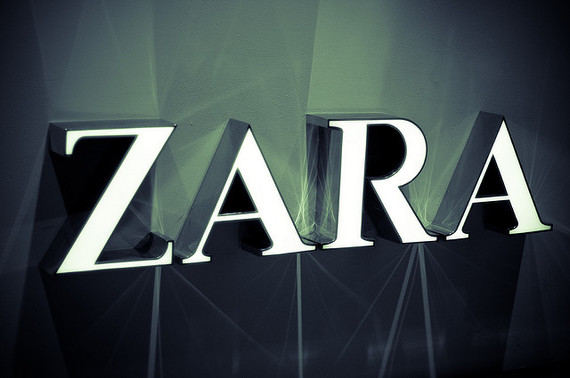A student in class last week raised his hand and asked me how Zara is successful without doing marketing. Even though it is early in the semester, I was horrified that I had not yet succeeded in teaching my students what marketing is. As I thought about it some more, my horror calmed down. I know that most, who do not have a depth of knowledge in marketing, have the same problem. They equate marketing with advertising. As they learn more, they discover that advertising is only one of numerous ways to promote products, and promotion is only one of seven fundamental building blocks of marketing. These building blocks, in turn, are merely a marketer's periodic table of elements from which he (or she) crafts a marketing mix of strategies that are used to achieve the goals of a marketing plan.
Articles that mislead
Of course, I cannot blame my student for being confused when many articles have been written about Zara that claim that the company has achieved its success without advertising. After reading one or two of them, most that do not know the underlying marketing fundamentals of Zara will be similarly mislead. To get the wanderers back on the marketing path, I hope to explain how Zara does a lot of marketing, and advertising too. I will do this organizing its strategies according to the seven fundamental building blocks.
Marketing Information System
Zara provides designer fashions at affordable prices because it has an effective marketing information system that captures fashion designs from the catwalk or concert stage and gets them into their stores very quickly. It also obtains feedback from buyers and fixes any problems quickly to keep them happy.
Corporate Image
The company has been around for a long time. Some trace its beginnings to 1963 with the first store opening in 1975. With over 2,000 stores in 77 countries, Zara makes a lot of brand impressions simply from the signs on these stores. During this period, it has developed a reputation as a fast-fashion company that copies the latest designs for women, men, and children and gets them into their stores in a matter of days.
Positioning
Zara's products are positioned as the latest designer fashions sold at reasonable prices in its own stores. It targets 18-40 year old women, men, and children that live in cities. It produces small runs of these fashions to create uniqueness and a sense of urgency. That is, if buyers don't buy them now, they may not be available tomorrow. Zara's key direct competitors are Topshop, Uniqlo, and H&M.
Product
To fit its positioning, Zara creates 500 or more new fast fashion, short-lived designs each month. They are made with inexpensive materials and labor and embody a fastidious attention to detail. By attending the latest concerts and fashion events, Zara's designers and scouts continuously develop new designs that are fed into Zara's rapid production process and quickly delivered to its stores.
Distribution
Zara sells its products out of 2,000 stores in 77 countries. Most of the stores (90%) are company owned and located near high-end retailers that draw considerable traffic. For those drawn to the high-end stores that want to pay lower prices, Zara is nearby to oblige them. In this way, Zara benefits from the cumulative attraction generated by its higher-end rivals. Also, with all these physical outlets and their online presence, they are able to collect rapid feedback from customers to make changes in subsequent production runs.
Promotion
Despite its reputation for doing no advertising, Zara does a lot. First of all, Zara gets a lot of attention from word-of-mouth advertising. The 18 to 40 something's that live in cities are nearby their friends, and they are not shy about telling them about Zara. Zara also benefits from endorsements from celebrities that are considered fashion experts. The Duchess of Cambridge is one of them. With 2000 stores in 77 countries located near other high-end stores, the Zara signs on its retail outlets promote the Zara brand.
Whether recognized or not, Zara is doing a lot of marketing
So for those who think that Zara is successful without doing marketing, think again. You cannot violate the rules of the universe. It is impossible to bring products to the market without marketing. As Peter Drucker said,
"Because the purpose of business is to create a customer, the business enterprise has two-and only two-basic functions: marketing and innovation. Marketing and innovation produce results; all the rest are costs. Marketing is the distinguishing, unique function of the business."

